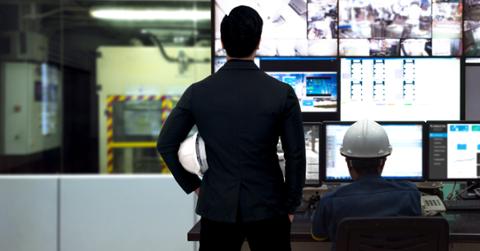Artificial intelligence (A.I.) and automation will almost certainly strip away thousands of jobs from humans over the next few decades. But which areas of the United States will automation impact the hardest? That’s a pressing question—and one that the Brookings Institution recently tried to tackle with an in-depth analysis.
Since A.I. will impact certain industries harder than others, those states with high concentrations of those industries may end up powerfully affected. The following states are heavily invested in manufacturing, which will need fewer human workers as automation (powered by machine learning) increasingly takes over:
- Wisconsin
- Michigan
- Indiana
- Kentucky
- Alabama
- Georgia
But states with heavy concentrations of knowledge workers and managers could also end up impacted over the long term, thanks to A.I. that increasingly takes over management, programming, and customer service. Washington, California, and the states along the Boston-Washington, D.C. corridor are ground zero for this flavor of automation.
Indeed, when it comes to vaporizing jobs, artificial intelligence might truly turn out to be an equal-opportunity hunter. “Our analysis shows that A.I. will be a significant factor in the future work lives of relatively well-paid managers, supervisors, and analysts,” a summary of the report stated. “Also exposed are factory workers, who are increasingly well-educated in many occupations as well as heavily involved with A.I. on the shop floor. A.I. may be much less of a factor in the work of most lower-paid service workers.” (The full report, a PDF, is available on the Brookings site.)
Brookings also created a chart of the top metro areas vulnerable to A.I. As you can see from the list, there are a mixture of high-tech hubs (San Jose and Seattle, for example) as well as manufacturing centers (Detroit) that are already seeing higher “standardized A.I. exposure.”
It’s a similar deal with states—if there’s a heavy concentration of manufacturing and/or knowledge workers, A.I. is a significant presence.
Fortunately for technologists, not all jobs will end up automated (at least not immediately). Burning Glass, which collects and analyzes millions of job postings, regularly crunches the data about automation and its potential impact on jobs. Here are some tech jobs with really low risk of automation:
What’s the takeaway here? As we’ve cited before, machines are becoming increasingly adept at straightforward jobs—but it’s difficult (if not impossible) for software to replicate tasks that require creativity, intuition, and “soft skills” such as empathy and nuanced communication. If you want to preserve your job well into the future, figure out how your role can “emphasize the human.”



